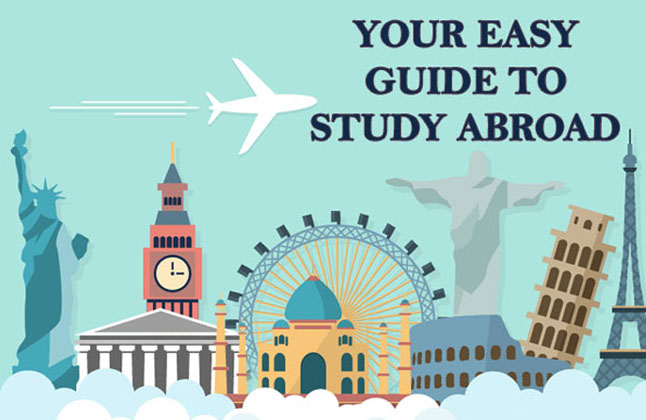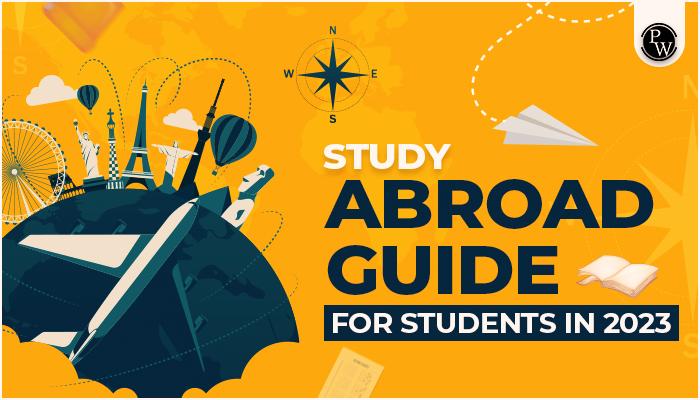
The Ultimate Guide to Studying Abroad
Essential Tips for a Successful Experience Studying abroad offers a unique opportunity to expand your horizons, immerse yourself in new cultures, and enhance your academic and professional skills. Careful planning and preparation are crucial to maximize this transformative experience. This comprehensive guide will walk you through the essential steps for a successful study abroad journey.
Choosing the right destination is a critical step in planning your study abroad.
Consider these factors to make the best choice:
Academic Excellence:
Look for universities and programs renowned for their academic rigor and relevance to your field of study. Research university rankings and program reviews to ensure you select a top-tier institution.
Language Requirements:
Determine if you need to learn a new language or if your courses will be in English. Many countries offer language courses that can enhance your educational experience.
Cultural Compatibility:
Reflect on potential destinations cultural and social environment. Decide whether you prefer a major city’s dynamic atmosphere or a smaller town’s peaceful setting.
Navigating the Study Abroad Application Process:
The application process can be complex, but with organized planning, it becomes manageable. Focus on the following areas:
Choosing the Right Program:
Identify study abroad programs that align with your academic and personal interests. Evaluate factors like course content, teaching methods, and the university’s reputation to find the best fit.
Preparing Your Documents:
Gather essential documents such as transcripts, test scores, and application forms. Ensure you meet all deadlines and follow specific program requirements to avoid delays
Crafting a Strong Personal Statement:
Write a compelling personal statement outlining your academic goals, motivations for studying abroad, and how the program aligns with your aspirations. That is your opportunity to make a memorable impression on the admissions committee
Financial Planning for Studying Abroad:
Effective financial planning is crucial to avoid unexpected costs and ensure a smooth study abroad experience:
Calculating Costs:
Assess the total cost of tuition, additional fees, and other expenses related to your study abroad program. Compare these costs with your budget and available financial aid options. –
Exploring Financial Aid:
Investigate scholarships, grants, and other funding opportunities specifically for international students. Many universities and external organizations offer financial support to help cover expenses for studying abroad. Creating a Budget:
Research the cost of living in your chosen destination, including accommodation, food, transportation, and leisure activities. Develop a detailed budget to manage your finances and avoid overspending.

Understanding Visa and Immigration Requirements:
Securing the appropriate visa and understanding immigration regulations is essential for a successful study abroad experience.
Visa Application:
Research visa requirements for your destination country, including documentation such as proof of admission, financial stability, and health checks.
Student Permits:
Some countries require additional permits to work or undertake internships. Ensure you understand these requirements and apply for them in advance.
Staying Compliant:
Familiarize yourself with local laws and regulations to ensure you remain compliant with immigration rules throughout your Stay
Health and Safety Considerations for International Students:
Prioritizing your health and safety is vital while studying abroad.
Health Insurance:
Confirm if your study abroad program provides health insurance coverage. If not, arrange a suitable health insurance plan meeting your host country’s requirements.
Health Precautions:
Check if any vaccinations or health precautions are needed for your destination. Ensure you are up-to-date on necessary immunizations. Emergency Preparedness: Learn about local emergency services and keep important contact information readily accessible to ensure your safety during your stay.
Emergency Preparedness:
Learn about local emergency services and keep important contact information readily accessible to ensure your safety during your stay
Adjusting to a New Culture While Studying Abroad:
Adapting to a new cultural environment is an integral part of studying abroad:
Learning Local Customs:
Gain an understanding of local customs, traditions, and etiquette to integrate smoothly into your new surroundings and avoid cultural misunderstandings.
Managing Culture Shock:
Be prepared for culture shock and give yourself time to adjust. Seek support from fellow students, local contacts, or counseling services to help you navigate this transition.
Contact us for study visa:
Or visit About us page.
Studying abroad offers numerous benefits, including exposure to new cultures, enhancing language skills, gaining international experience, and building a global network. It can also make your resume stand out to potential employers. Discover how studying abroad can boost your career and personal growth.
Choosing the right study abroad program involves considering factors such as your field of study, destination preferences, budget, and duration. Research various universities and countries to find a program that aligns with your academic and personal goals. Learn how to select the best study abroad program for your needs.
Requirements for studying abroad typically include academic transcripts, a valid passport, proof of language proficiency, and a student visa. Some programs may also require entrance exams or letters of recommendation. Find out what you need to study abroad in your desired country.


